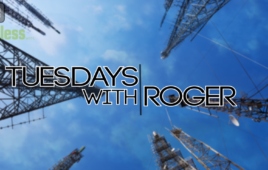Speculation that the FCC’s ongoing spectrum incentive auction could run into a fifth stage was laid to rest Wednesday as the bidders in Round 2 of the Stage 4 forward auction finally cleared the bar allowing the auction to close.
FCC Chairman Tom Wheeler said the milestone meant the auction had “delivered on its ambitious promise.”
“Reaching the Final Stage Rule means the benefits of the auction are indisputable,” Wheeler said in a statement. “We will repurpose 70 MHz of high-value, completely clear low-band spectrum for mobile broadband on a nationwide basis. On top of that, 14 MHz of new unlicensed spectrum – the test bed for wireless innovation – will be available for consumer devices and new services.”
As of Wednesday afternoon, forward auction bidders had raised $18.2 billion in auction proceeds, or 87 cents per MHz POP, for a net proceeds total of $17.65 billion. Though the final stage rule was satisfied with this total, the FCC noted bidding will continue until there is no excess demand in any market. Once that is achieved, an assignment period will be held in which winning wireless bidders will be able to bid for specific blocks in their markets.
BTIG’s Walter Piecyk in a Wednesday evening note observed there are 139 markets remaining where demand outstrips supply, but said the final stage development sets the auction on course to wrap up by the end of February with the anti-collusion period lifted by mid-March.
Once that’s all over, the clock will begin ticking on the 39-month transition period in which broadcasters will have to clear their spectrum and migrate their stations to new channels. That process will be overseen by Wheeler’s successor after the Chairman steps down at the end of this week.
“There is still a long road ahead to successfully implement the post-auction transition of broadcast stations to their new channels and bring the new wireless and unlicensed spectrum to market,” Wheeler commented. “This will be an extremely important task for my successor and the new Commission; I wish them well.”
Crossing the final stage threshold is good news for broadcasters, as it ensures they’ll receive $10.05 billion for their spectrum. While the total is significantly lower than broadcasters had hoped for – leading some to call the auction a failure – the figure would have dropped further had the auction progressed to a Stage 5.
Meeting the final stage rule has also opened up the spectrum reserve to forward auction bidders, the FCC noted on its auction dashboard. In implementing the reserve, the FCC said each Category 1 product for which at least one reserve-eligible bidder has processed demand at the time is split into two products: reserved and unreserved. Reserve-eligible bidders will be able to bid on either category, while non-reserve bidders will only have access to unreserved spectrum.
The maximum amount of reserve spectrum in any market is 30 MHz, an FCC official confirmed Thursday, but some markets will have less either because the markets came into the auction with less supply (as in the case of Los Angeles) or because demand from reserve-eligible bidders in those markets was slack.
According to the list of reserve-eligible providers released by the FCC in October 2015, T-Mobile is the only participating Tier-1 reserve-eligible carrier in most of the top 20 markets, including New York and Los Angeles. In Dallas, Miami, and Orlando, though, Verizon is also in the reserve running, and AT&T will be able to bid on reserve spectrum in Cleveland and Phoenix.
Though there’s no real way to tell how much any individual company has bid, Piecyk pointed out that if T-Mobile and AT&T both snagged 20 MHz licenses nationwide that would account for $10.8 billion in bids. Based on its much smaller upfront payment, Verizon could have snagged 5×5 licenses in New York, Chicago, and Miami – where it lost out in the AWS-3 auction – for around $700 million, Piecyk added. The remaining $6.7 billion in bids could have come from Comcast and Dish, he said, or one of the three wireless carriers could have purchased larger chunks of spectrum.
Bidding in the forward auction will pick up again for one six-hour round on Thursday before taking a break for the inauguration. Bidding will resume with rounds 4 and 5 on Monday, Jan. 23.
Filed Under: Telecommunications (spectrums)




